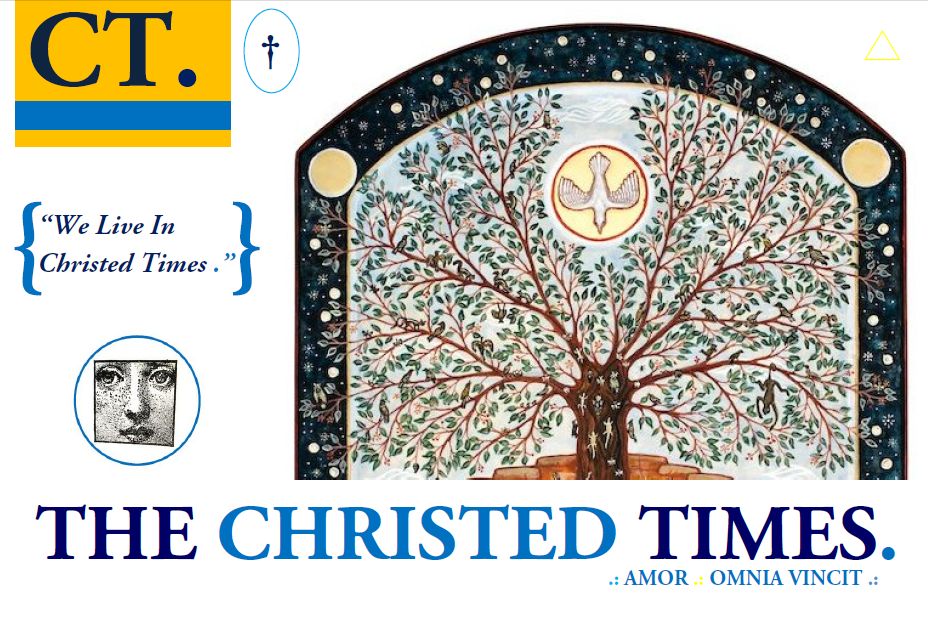C O N S E N S I A N I T Y
A visit to the World Council of Churches at Uppsala in Sweden confirmed my feeling that institutional Christianity is quietly but inexorably extinguishing itself. Ecumenicalism is predominantly, I should suppose, a response to this sense of being about to become extinct, rather than to any zeal for union as such. The most vital elements in the Christian story have, in any case, derived from dissidence rather than agreement - St. Francis, Ignatius Loyola, Luther, Pascal, Wesley, Kierkegaard, etc., etc. At Uppsala, as one clearly saw, they were able to agree about almost anything because they believed almost nothing. They reminded me of a pub turn-out in my youth, with ten or a dozen drunks holding on to one another, swaying to and fro, but managing to remain upright. Alone, they would infallibly have fallen into the gutter. It was all tremendously reminiscent of the United Nations, that tragically absurd assembly - stony faces between earphones, paper circulating in prodigious quantities ( the Swedish Government allotted ten tons, which got used up in the first two days ), oratory to match, interminable discussions about the precise wording of statements of belief and purpose which few would read and none heed, a well-equipped but little-used press room, documents of no conceivable importance or interest to anyone urgently rushed out to choke the pigeon-holes of absent journalists.
If ever in human history there was a non-event, this was it. I cannot see how, apart from the desultory use of the cross as a symbol and the garb of some of the delegates, anyone could possibly have known that the occasion had anything to do with the Christian religion. The natural assumption would have been that it was an assembly of the well-intentioned concerned to deal with some of the world's problems like hunger and racialism, but displaying little clear notion of how to set about it, and anyway disposing of no authority or resources commensurate with the task.
It is natural enough, I suppose, that the churches in their final decrepitude should thus concentrate on their social, and ignore their spiritual, responsibilities. Thereby they fall in with the prevailing temper of the age ; everyone can understand the merit of giving a starving man food, or of championing the victims of napalm or apartheid, but the very language of mysticism or transcendentalism has ceased to be comprehensible.
In St. Augustine's Confessions, I read : " I no longer hoed for a better world because I was thinking of the whole of creation, and in the light of this clearer discernment I had come to see that though the higher things are better than the lower, the sum of all creation is better than the higher things alone.'
The Churches, on the contrary, feel bound to proclaim a better world, thereby promoting their own extinction. For if a better world were attainable, they would be unnecessary; if - as is far more probable - it is unattainable, they cannot but be involved in the consequent disillusionment.
Their better world promotion has the short-term advantage of being a soft sell. How much easier, and even pleasurable, to march to the American Embassy to protest against the war in Vietnam than to march to Gethsemane! Even the saints have found Christian virtue hard to practise, but any tousled student can acquire a glow of righteousness by pouring a bucket of paint over some visiting speaker from the U.S. Embassy or South Africa House. And how many of those who so ardently collect for Oxfam reflect that if the amount collected were multiplied by a thousand it would still not come anywhere near compensating for those Indian doctors keep our ( on Asian standards ) over-manned Health Service going? Again, many more people are killed and injured on the world's roads any bright week-end than in a month of Vietnam war, but whoever heard of a protest march about that? To stop slaughter on the roads it would be necessary to restrict motoring, which the Churches could not possibly recommend. It would amount to restricting pleasure, which in terms of the pursuit of happiness, is the ultimate abomination.
In a materialist society, pleasure alone is sacred, and its instruments ( money, contraceptives, drugs, etc. ) are invested with sanctity and regarded with veneration - the modern equivalent of the bones of St. Peter or fragments of the True Cross.
Excerpted from, " Jesus Rediscovered " / Brother Malcolm Muggeridge
. . .
Wednesday, June 9, 2010
Subscribe to:
Post Comments (Atom)


No comments:
Post a Comment